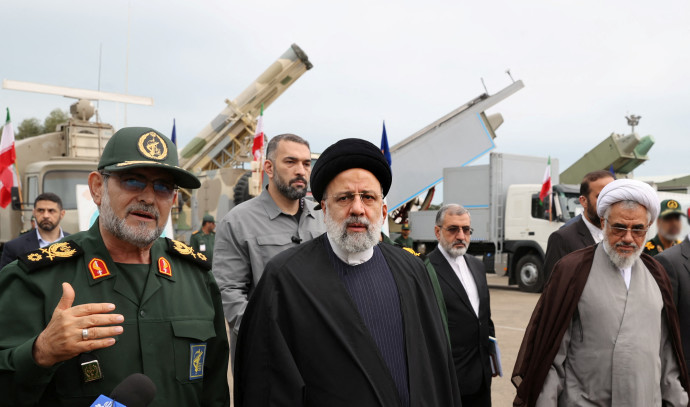One of Iran’s top naval commanders spoke with the pro-Iranian al-Mayadeen in a wide-ranging interview, where he sketched out how Iran wants to become a naval and regional military power, and how it plans to confront Israel on various fronts. Iran’s pro-government Fars News characterized the new policy as calling for a “coalition of Muslim armies against the Zionist regime.”
Rear Admiral Alireza Tangsiri is the commander of the Islamic Revolution Guards Corps Navy. The IRGC navy is different than the regular Iranian navy, but in many ways, the IRGC navy is more important for Iran’s regional strategy. The discussion then has larger ramifications for Iran in the region and its war on Israel, than a discussion with other commanders in Iran’s navy.
Tangsiri’s main message is that Iran will not remain quiet after an airstrike in Damascus killed a top IRGC commander last week; it will respond. Iran has been saying this for a week now. He added that Iran became an exporter of weapons, including missiles, boats, and radars, and that the US embargo on Iran has not succeeded, Iran is growing more powerful in its manufacturing power.
He further noted that Israel has “not achieved its goals” in Gaza, after six months of war; this is a key point for Iran, which has watched the war carefully, particularly Israel’s messaging on its own goals.
Al-Mayadeen noted that while Israel said Hamas would be defeated, “Hamas today is stronger than ever before, and has suffered the least losses.” Tangsiri added that the people of Gaza have high morale, though he didn’t elaborate. He then claimed that “the world turned against the Zionists,” a sign that the world was growing more critical of the war.
Iran is particularly paying attention to how the IDF is performing. Tangsiri noted that Israel claims to have a strong army with advanced weapons, “but to this day, the Zionists have not been victorious, neither in the military nor political fields… nor in the social sphere.”
Iran says naval drills are messages of peace
On the naval front, he said that Iran is conducting outreach at sea and that its drills in the Strait of Hormuz are messages of peace. It is not clear whether the rest of the Gulf countries feel that way. Iranian Foreign Minister Hossein Amirabdollahian visited Oman several days ago, so the messaging could relate to that as well. From there, he flew to Damascus.
Tangsiri also reassured Iran’s neighbors that the Persian Gulf is secure and that it is Iran’s “responsibility.” This is Iran asserting greater control in naval matters, empowered by the Iranian-backed Houthi attacks on shipping.
Tangsiri also challenged countries accused of “bringing Zionists to this region,” in an apparent threat to the Abraham Accords countries and US Central Command, which works with Israel. “America must know that the Persian Gulf is not an international sea, but rather it concerns Iran and its neighboring countries,” he said, adding that Iran is constantly monitoring the US in the region and also the US naval forces.
Iran believes Israel is losing in Gaza and it only has to wait a little longer to ring Israel with more threats. It is also working to cultivate closer ties with regional countries. Iran views many of these countries as subservient to Iran and views the Persian Gulf as a key property and it is still concerned about the Abraham Accords.

